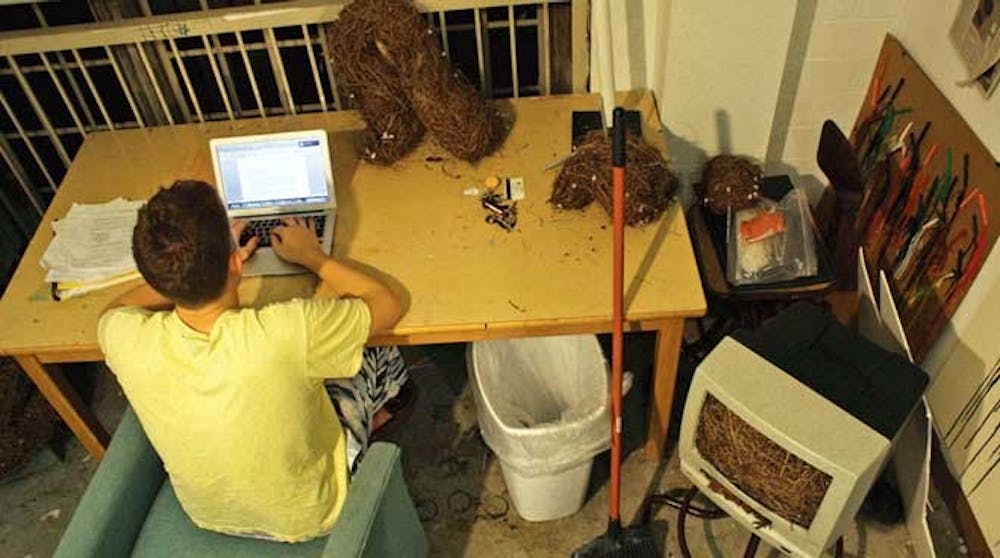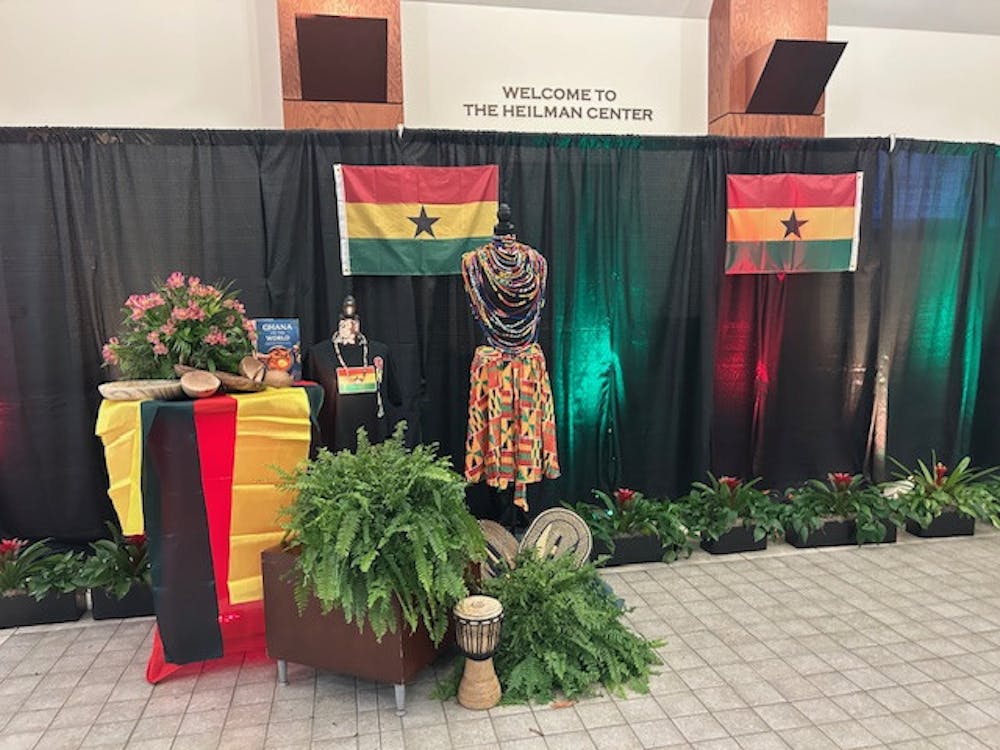Every year, the University of Richmond attracts talented visual and performing artists by offering up to six full-tuition scholarships to incoming freshmen through the Richmond Scholars program.
Jennifer Cable, professor of music and director of the Richmond Scholars program, said artist scholars must major or minor in studio art, music, theatre or dance. They are awarded full tuition, allotted a summer stipend for educational experiences, allowed priority registration, provided guaranteed housing and given ticket vouchers for Modlin Center performances, she said.
Some artist scholars, such as senior Jon Henry, junior Katie Branca and sophomore Lexie Peterson, said the scholarship had been the deciding factor in choosing to attend Richmond.
"It's an incredible motivation to look at a school you wouldn't normally look at," said Branca, who is majoring in English with minors in dance, journalism and creative writing. "Just open the door to Modlin and...there are incredible opportunities hidden back here. The program turns heads."
Artist scholars must have applied by the Richmond Scholar deadline, which is Dec. 1, about one month earlier than the regular application deadline. Once selected as a Richmond Scholar semifinalist, they must present specific artist resumes and statements, in addition to a detailed portfolio, according to the Richmond Scholars webpage.
"Intellectual curiosity is important," said Myra Daleng, director of dance and a member of the committee that selects the artist scholars. "They need to be well-rounded and to be what we consider leaders, diversity in their thoughts and actions, all combined with their talent."
Artist scholars attend Richmond because they are looking for academic rigor and liberal arts, Daleng said. Instead of studying at an art institute or conservatory, artist scholars at Richmond can major in biology or business and still have the resources to pursue their artistic passion, she said.
Peterson, who is majoring in biology and dance, said, "I was excited [to come to Richmond] because I wanted to double major and everywhere else I had been looking I wasn't going to have the same opportunities to dance and still be able to double major."
Branca said she had been offered various partial scholarships for dance from other colleges, but had been interested in the combination of strong academics with a strong dance company, which she found at Richmond. She said if she had not received the artist scholarship, she would not have been able to attend Richmond.
Henry, who is double majoring in studio art and international studies, said he had looked at other art schools that were less expensive, but the artist scholarship won him over.
Being an artist scholar puts pressure on him to work harder because students and staff in the art departments know he is a scholar, he said. At the same time, he said there was little recognition of his scholarship outside of the Modlin Center.
"I don't think they really know what that means," he said of professors in other departments. "They always ask me why I'm majoring in art or what I plan to do with art."
Enjoy what you're reading?
Signup for our newsletter
Branca said she understood why students and staff were not familiar with the artist scholar program. She said that most artists spent the majority of their time within one building.
"I go out and I am an English major and I come back and become a dancer again," Branca said. "So the fact that people don't know [the scholarship] exists is not a surprise to me."
Henry said a lot of students did not understand what went into getting a creative art major -- a lot of work, money and time.
Daleng said, especially with the dancers, artist scholars were motivated and skilled at time management. She emphasized how dancers put in four or five hours a night dancing while managing heavy course loads.
"Pressure makes diamonds and they really do sparkle," she said.
Peterson said that because she was an art scholar, she noticed higher expectations. It is important to be a leader in her dance company as well as to go above and beyond in her commitment to the arts, she said.
Only two classes of artist scholars have graduated from Richmond, so it is too soon to tell what each will accomplish after graduation, wrote Cable in an email. She added that the artist scholarship was reviewed annually to determine if changes were needed.
The goal is to increase the pool of applicants and to be able to offer more scholarships, Daleng said. She said arts did not always have a prominent place in the curriculum at Richmond, but the artist scholarship helped.
"I think [the growing prominence in the curriculum is] really bringing light to the fact that we are strong in the arts and want to keep growing stronger as we bring in more of these young artists who are very talented and want that liberal arts education," she said.
Contact reporter Chrissy Wengloski at chrissy.wengloski@richmond.edu
Support independent student media
You can make a tax-deductible donation by clicking the button below, which takes you to our secure PayPal account. The page is set up to receive contributions in whatever amount you designate. We look forward to using the money we raise to further our mission of providing honest and accurate information to students, faculty, staff, alumni and others in the general public.
Donate Now



